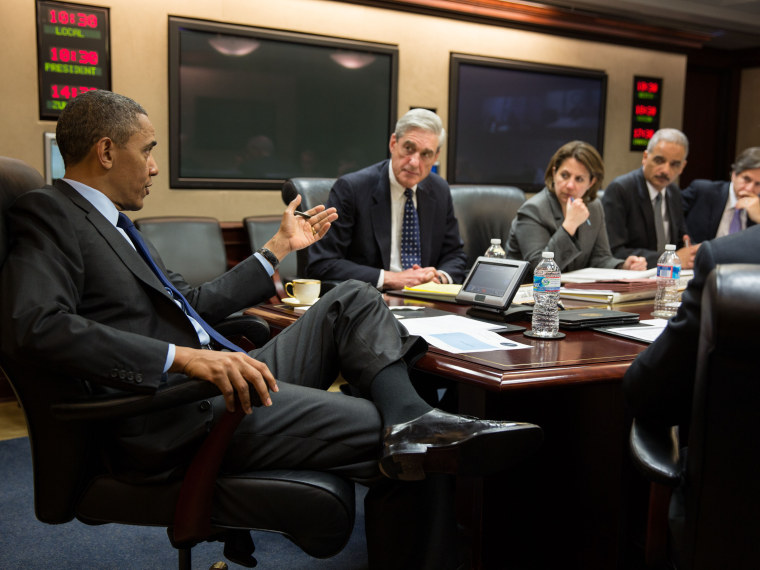A survey of law-enforcement officials about America's most serious threats did not point to foreign religious extremists. Vox had an
interesting report on who's seen as an even bigger security risk.
In a 2014 survey, the National Consortium for the Study of Terrorism and Responses to Terrorism (START) surveyed hundreds of law enforcement personnel at the state and local level, all of whom had training in intelligence gathering or counterterrorism. They were presented with a list of radical groups and asked to rate, on a scale of 1 to 4, how much they agreed that this group posed a terrorist threat to the US.
The anti-government "sovereign citizen" movement
was #1, followed by "Islamic extremists." On the list of groups perceived as the highest threat, anti-government militias was third, followed by skinheads and Neo-Nazis. They were followed by animal rights extremists, environmental extremists, and then the KKK.
Granted, the data is a year old, and it's possible attitudes among law-enforcement professionals have changed a bit since 2014, but that doesn't change the striking nature of the findings.
Indeed, the findings
found, "Approximately 39 percent of respondents agreed and 28 percent strongly agreed that Islamic extremists were a serious terrorist threat. In comparison, 52 percent of respondents agreed and 34 percent strongly agreed that sovereign citizens were a serious terrorist threat."
If the study's findings seem familiar, there's a good reason. In June, the
New York Times published
an op-ed from UNC sociologist Charles Kurzman and David Schanzer, the director of the Triangle Center on Terrorism and Homeland Security at Duke University, on the "growing right-wing terror threat."
The piece explained, "In a survey we conducted with the Police Executive Research Forum last year of 382 law enforcement agencies, 74 percent reported anti-government extremism as one of the top three terrorist threats in their jurisdiction; 39 percent listed extremism connected with Al Qaeda or like-minded terrorist organizations. And only 3 percent identified the threat from Muslim extremists as severe, compared with 7 percent for anti-government and other forms of extremism."
As we
talked about at the time, far too often, when Americans think of security threats, we think of the Middle East, al Qaeda, and ISIS militants. There's ample evidence, however, that suggests these assumptions are overdue for a re-examination.
A separate
Times report added:
Since Sept. 11, 2001, nearly twice as many people have been killed by white supremacists, antigovernment fanatics and other non-Muslim extremists than by radical Muslims: 48 have been killed by extremists who are not Muslim, compared with 26 by self-proclaimed jihadists, according to a count by New America, a Washington research center. The slaying of nine African-Americans in a Charleston, S.C., church last week, with an avowed white supremacist charged with their murders, was a particularly savage case. But it is only the latest in a string of lethal attacks by people espousing racial hatred, hostility to government and theories such as those of the "sovereign citizen" movement, which denies the legitimacy of most statutory law. The assaults have taken the lives of police officers, members of racial or religious minorities and random civilians.
University of Massachusetts Lowell scholar John Horgan told the Times, "There's an acceptance now of the idea that the threat from jihadi terrorism in the United States has been overblown. And there's a belief that the threat of right-wing, antigovernment violence has been underestimated."
